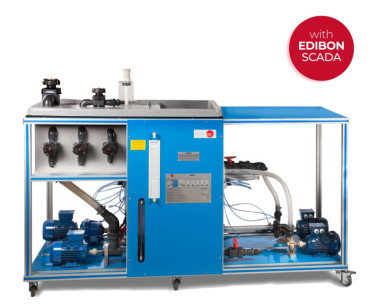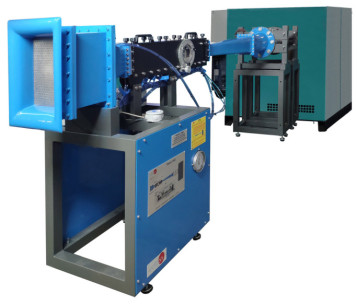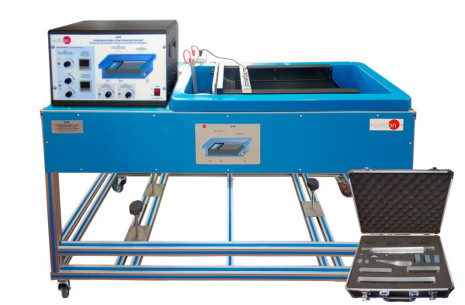- Home
- Products
- 1.- PHYSICS
- ACADEMIC PROGRAMS
- HIGHER TECHNICAL EDUCATION
- FOOD ENGINEERING
- TOPOGRAPHIC ENGINEERING
- GEOLOGY
- FOREST ENGINEERING
- ENVIRONMENTAL ENGINEERING
- ECOLOGICAL ENGINEERING
- TEXTILE ENGINEERING
- ENGINEERING FOR AGRICULTURAL INDUSTRIES
- MECHANICAL ENGINEERING
- CHEMISTRY
- CHEMICAL ENGINEERING
- PROCESS ENGINEERING
- GEOLOGICAL, MINES AND OIL ENGINEERING
- PETROLEUM TRAINING CENTER
- NAVAL ENGINEERING
- AGRICULTURAL ENGINEERING
- ELECTRONICS ENGINEERING
- ARCHITECTURE
- COMPUTER SCIENCE & ENGINEERING
- NUCLEAR ENGINEERING
- AUTOMATIC ENGINEERING
- ENERGETIC ENGINEERING
- ENERGY TRAINING CENTER
- ELECTRICAL ENGINEERING
- SYSTEMS ENGINEERING
- AERONAUTICAL ENGINEERING
- OCEAN ENGINEERING AND MARINE SCIENCES
- PHYSICS
- INDUSTRIAL ENGINEERING
- INTERNATIONAL CENTER FOR TECHNICAL TRAINING, DEVELOPMENT AND RESEARCH
- MATERIALS ENGINEERING
- METALLURGICAL ENGINEERING
- CIVIL ENGINEERING
- TELECOMMUNICATION ENGINEERING
- THERMAL ENGINEERING
- TECHNICAL AND VOCATIONAL TRAINING
- ELECTRONICS
- COMMUNICATIONS
- ELECTRICITY
- COMPUTER SCIENCE
- AUTOMOTIVE TECHNOLOGY
- CIVIL ENGINEERING
- MECHANICAL AND MANUFACTURE
- MECHANICAL AND METAL
- FLUID MECHANICS
- REFRIGERATION AND AIR CONDITIONING
- INDUSTRIAL CHEMISTRY
- CHEMISTRY
- FOOD TECHNOLOGY
- AGRICULTURAL
- AGROINDUSTRY
- MAINTENANCE
- MARITIME AND FISHERY
- AERONAUTICAL MAINTENANCE
- INSTRUMENTATION AND CONTROL
- ENVIRONMENTAL
- TECHNOLOGY
- CONSTRUCTION TECHNOLOGY
- ELECTROMECHANICAL TECHNOLOGY
- STRUCTURAL DESIGN TECHNOLOGY
- INDUSTRIAL PRODUCTION TECHNOLOGY
- INFORMATION TECHNOLOGY
- QUALITY CONTROL
- ENERGY SYSTEMS TECHNOLOGY
- MINING AND PETROLEUM TECHNOLOGY
- NATURAL GAS TECHNOLOGY
- RENEWABLE ENERGY
- TELECOMMUNICATIONS TECHNOLOGY
- MECHANICAL TECHNOLOGY
- WIND TECHNOLOGY
- NUCLEAR TECHNOLOGY
- PROCESS CONTROL TECHNOLOGY
- GENERAL SERVICES TECHNOLOGY
- LABORATORY TECHNOLOGY
- AUTOMATION AND MECHATRONICS
- TRANSPORTATION AND LOGISTICS
- HIGHER TECHNICAL EDUCATION
- 2.- ELECTRONICS
- 3.- COMMUNICATIONS
- 4.- ELECTRICITY
- 5.- ENERGY
- 5.1.- SMART GRIDS AND POWER SYSTEMS
- 5.2.- MICROGRIDS
- 5.3.- RENEWABLE ENERGIES
- 5.3.1.- PHOTOVOLTAIC SOLAR ENERGY
- 5.3.2.- SOLAR THERMAL ENERGY
- 5.3.3.- WIND ENERGY
- 5.3.4.- MARINE ENERGY
- 5.3.5.- GEOTHERMAL ENERGY
- 5.3.6.- HYDRAULIC ENERGY
- 5.3.7.- BIOFUELS
- 5.3.8.- STORAGE SYSTEMS
- 5.3.9.- HYDROGEN FUEL CELLS
- 5.3.10.- STEAM TURBINES AND ORGANIC RANKINE CYCLES
- 5.3.11.- OTHER NON-CONVENTIONAL SYSTEMS
- 5.4.- CONVENTIONAL ENERGIES
- 5.5.- ENERGY STORAGE
- 5.6.- HIGH VOLTAGE AND ELECTRICAL PROTECTION SYSTEMS
- 5.7.- INSTALLATIONS AND MAINTENANCE
- 6.- MECHATRONICS & AUTOMATION
- 7.- MECHANICS
- 8.- FLUID MECHANICS
- 9.- THERMODYNAMICS & THERMOTECHNICS
- 9.1.- FUNDAMENTALS AND BASIC CONCEPTS OF THERMODYNAMICS
- 9.2.- HEATING, VENTILATION, AIR CONDITIONING AND HOT WATER
- 9.3.- HEAT PUMPS
- 9.4.- REFRIGERATION
- 9.5.- THERMAL HYDRAULIC PIPING SYSTEM
- 9.6.- HEAT TRANSFER
- 9.7.- HEAT EXCHANGERS
- 9.8.- THERMAL MACHINES
- 9.9.- INTERNAL COMBUSTION ENGINES
- 9.10.- INSTALLATIONS AND MAINTENANCE
- 10.- PROCESS CONTROL
- 11.- CHEMICAL ENGINEERING
- 11.1.- UNIT OPERATIONS
- 11.1.1.- FLUIDIZATION
- 11.1.2.- EVAPORATION
- 11.1.3.- BOILING
- 11.1.4.- DISTILLATION AND CRACKING
- 11.1.5.- EXTRACTION
- 11.1.6.- DIFFUSION
- 11.1.7.- DRYING AND COOLING
- 11.1.8.- ABSORPTION AND ADSORPTION
- 11.1.9.- ION EXCHANGE AND CORROSION
- 11.1.10.- CRYSTALLIZATION AND PYROLYSIS
- 11.1.11.- FILTRATION, SEDIMENTATION AND MIXING
- 11.1.12.- SOLIDS TREATMENT
- 11.2.- CHEMICAL REACTORS
- 11.1.- UNIT OPERATIONS
- 12.- FOOD & WATER TECHNOLOGIES
- 13.- ENVIRONMENT
- 14.- BIOMEDICAL ENGINEERING
- 14.1.- BIOMECHANICS
- 14.1.1.- MECHANICS FUNDAMENTALS KITS
- 14.1.2.- SIMPLE MACHINES
- 14.1.3.- STATICS AND DYNAMICS
- 14.1.4.- VIBRATIONS AND OSCILLATIONS
- 14.1.5.- TRIBOLOGY (FRICTION, WEAR, LUBRICATION)
- 14.1.6.- STRUCTURAL MECHANICS
- 14.1.7.- PHOTOELASTICITY AND STRAIN MEASUREMENT
- 14.1.8.- MECHANICAL TESTS
- 14.1.9.- THERMAL AND ACOUSTIC TESTS
- 14.2.- BIOMEDICAL ELECTRONICS
- 14.3.- BIOMEDICAL EQUIPMENT
- 14.1.- BIOMECHANICS
- LABORATORY ACCESSORIES
- CUSTOMIZED PILOT PLANTS
- MODULES
- EXPANSIONS
- LABORATORIES
- Lines of Business
- Technology
- Downloads
- About us
- News
- Contact us
Fluid Mechanics: Advances, Importance, and Educational Applications
What does the area of fluid mechanics study?
Importance and Enhancement of Education through Specialized Fluid Mechanics Equipment
- Hydrostatics: Hydrostatics, a crucial branch of fluid mechanics, focuses on fluids at rest. It studies the distribution of pressure in liquids and non-moving gases. Hydrostatic pressure is a fundamental concept as it determines phenomena such as the buoyancy of submerged bodies and the measurement of depth in bodies of water.
- Hydraulic Channels: Hydraulic channels, essential in hydraulic engineering, are constructed pathways for the controlled flow of water. Their design and characteristics directly impact the efficiency of water distribution, agricultural irrigation, and hydroelectric power generation. Exploring these channels not only reveals the secrets of hydraulics but also highlights the importance of water management in modern society.
- Aerodynamics: Aerodynamics delves into the study of fluid behavior, especially air, when interacting with moving objects. From the shape of aircraft wings to automobile design, aerodynamics plays a crucial role in the efficiency and performance of various vehicles. Understanding aerodynamics not only drives innovation in design but also contributes to fuel consumption reduction and emissions.
- Fluid Machines: Fluid machines, from pumps to turbines, are devices designed to transfer energy between a fluid and a mechanical source. Understanding their characteristics is essential for optimizing efficiency in industrial and energy applications. Studying fluid machines involves not only knowing their theoretical foundations but also experimenting with specialized equipment to understand their practical operation.

Highlighted Fluid Mechanics Equipment
With over 45 years of research and collaboration experience with educators and researchers worldwide, EDIBON has created training and research equipment to enhance the educational process and contribute to research in various areas within fluid mechanics as mentioned above. Our offerings include training equipment that, when installed in laboratories, complement theoretical studies, thus improving learning and fostering new lines of research.
Among the different equipment designed by EDIBON are CFG-Fluid Channels, TAS25/100C-Supersonic Wind Tunnel, Computer Controlled (PC), PBOC-Multibomb Test Bench (4 types of pumps), Computer Controlled (PC), and UVF-Hydrogen Bubble Flow Visualization Equipment. These equipment offerings provide practical and visual experiences, strengthening the understanding of theoretical concepts and promoting educational and research excellence.
In conclusion, fluid mechanics emerges as an essential discipline in contemporary engineering and science. By understanding its fundamentals, exploring its branches, and experimenting with specialized equipment, we not only improve our understanding of the world around us but also empower future minds to address the technological and environmental challenges ahead. The installation of specialized fluid mechanics equipment in educational environments is the key to opening doors to a future driven by innovation and knowledge.
 Cookie preferences
Cookie preferences



